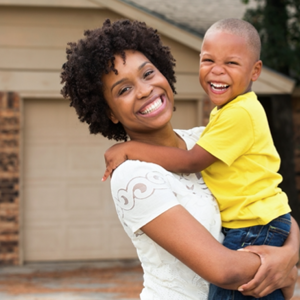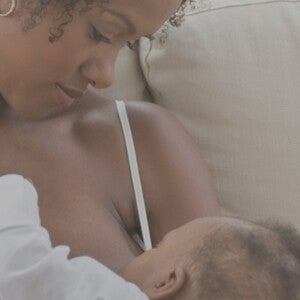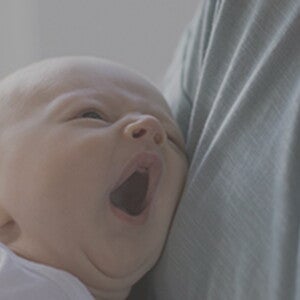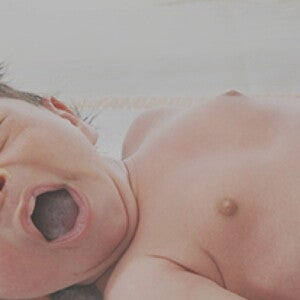Search

Growing Up Happy at Home Tips - Lockdown Play

Happy tummies mean happy days for growing kids
Your child’s happiness begins with good physical health and positive social interactions.

Discover 99+ ways to assist your child in growing up happy
Inspired by happy growing children, we bring you some of the 99+ ways you can choose to assist your child in growing up happy. Growing up happy starts in the tummy and grows from there!

Overcoming breastfeeding problems
Breastfeeding doesn’t always come naturally but with a bit of practice, perseverance, and a few pointers, it can get easier. Try these steps to help tackle breastfeeding problems.

How to give a baby massage
Baby massages are great for getting baby ready for bed and soothing tummy troubles. Find out what to do with this baby tummy massage breakdown.

Taking baby out for the first time guide
Taking baby out for the first time can be daunting. This checklist should help make it easy for all your baby friendly days out. Whether it’s a walk in the park, or somewhere more far-flung.

How to help baby sleep better
Babies love to sleep, eat, repeat. Right? Except the sleep bit can sometimes take work.

How to start complementary feeding
Starting complementary feeding is an exciting time. Here are our top tips on how and when to start baby food.

Baby immunisations - a parent’s guide
Immunisation time—gulp! Your baby’s first injections can be upsetting parents and babies. If you are anxious, your baby may pick up on your feelings so try to stay calm.

Bath time checklist: How to bathe a newborn
Washing a newborn for the first time can be nerve-racking as well as a lovely bonding moment. Follow our tips on how to bathe a newborn safely.

Bathing hacks: How to top and tail a new born
Some babies love having a bath, while others need time to get used to it. For the first few weeks or so, you may want to top and tail baby instead as a bathing hack.

Moving on to finger foods? Follow our baby-led weaning checklist
Wondering when to start baby food? Most babies are ready to start trying at around six months.

Baby food allergies and intolerances - things to consider
Baby allergies and intolerances can develop at any time. An allergy is our immune system’s reaction to a substance it thinks is harmful.

How to soothe a colicky baby
Babies cry. Some babies cry more than others. If your otherwise healthy baby is under five months old and has repeated bouts of uncontrollable crying, it could be colic.

How to read baby sign language
From the moment they’re born, your baby has a lot to say.

Planet-saving tips for an eco-friendly baby
Saving the planet doesn’t have to stop because you’ve had a baby. Yes, they’re a teeny bundle of mess-creating, gadget-needing joy.

Next steps in baby’s solid foods adventure
Now that you’ve introduced baby to some new tastes and textures, you can start broadening their taste buds even further by offering a variety of healthy solid foods.

How to handle toddler sleep problems
You know they’re tired, but they refuse to listen—and try as you will, the land of nod seems but a distant dream.

Terrible twos coming up? How to deal with toddler tantrums
Now they’re walking and talking, your toddler’s asserting their independence more and more every day, as well as developing a strong willpower!

A guide to your toddler’s birthday party
Here are some toddler birthday party ideas, that your kids will enjoy. This list will help with picking a party venue, to deciding on gifts.

A guide to family meals for toddlers
Wondering how you can enjoy family meals for toddlers? Eating together is a lovely way to bring everyone together and to teach your toddler about healthy eating.

How to encourage baby’s first steps—in 10 steps
It can be both thrilling and terrifying watching your baby’s first steps—or at least, attempted steps.

Baby talk: How to encourage baby’s first words.
Your baby’s first words are likely to happen after a few months of baby talk.

Exercise with toddlers: Clever mom hacks for hectic lives
Some days, the last thing you probably feel like doing is exercise—particularly if you’ve had a sleepless night. But keeping active can do wonders for your physical and mental health.

How to be a confident parent: start today with six easy steps
Becoming a new parent, and bringing your newborn home, is the most daunting experience to navigate.

Six easy ways to deal with judging parents
Feel like you’re the victim of mom shaming or mom judging? It’s tough being a new mom, let alone if you feel like you’re under attack from parental criticism.

Fed up with mom guilt? Here’s how to banish unhelpful thoughts
Tired of battling mom guilt? It’s entirely normal, but pretty unhelpful if you’re navigating many other new mom emotions.

Here’s how to handle visitors after giving birth
If you’re an overwhelmed mom or dad with too many baby visitors, don’t panic, many parents have been in this position before.

New mom emotions to look out for and how to deal with them
Having a baby and becoming a first-time parent is a massive emotional rollercoaster. Here are 10 emotions after giving birth that you may be experiencing.

Emotionally preparing to become a mom
Amazing news! You’re expecting your first baby. But what can you do to prepare your mental health for parenthood?

10 money-saving tips for having a baby on a budget
Working out how much to save for a baby can be a daunting task.
